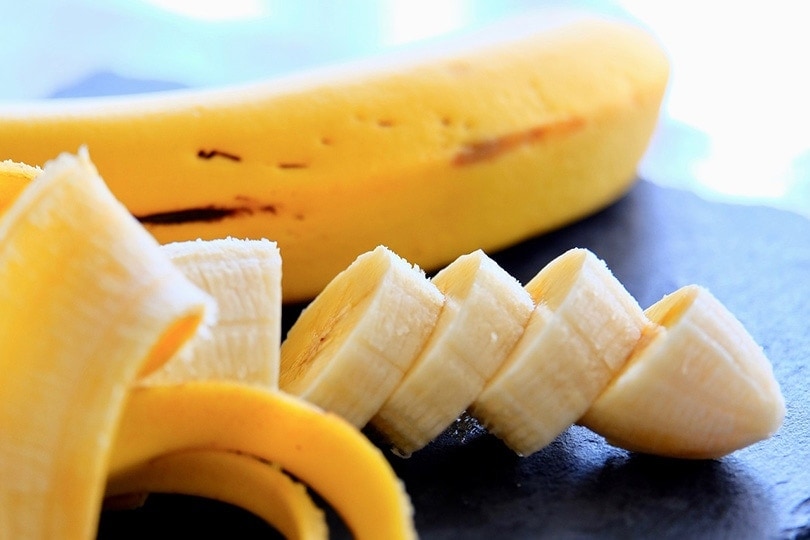Sometimes there’s nothing better than eating fruit on a warm, sunny day, and you may wonder if you can share some with your dog. Some fruit is safe for your pet to sample, but unfortunately, passionfruit is toxic to dogs. While not all parts of the fruit are bad for them, the seeds are toxic.
So, let’s look at why dogs shouldn’t eat passionfruit and what you should do if they help themselves to a piece.
Why Can’t Dogs Eat Passionfruit?
Passionfruits are made up of a rind, flesh, and seeds; the flesh isn’t toxic to dogs if the fruit is ripe. If the passionfruit is unripe, all of it is harmful to your dog. The seeds are the most concerning part, and if you’ve ever seen a passionfruit, you’ll know that the seed content is dense.
Like apples, the passionfruit’s seeds contain cyanide.1 However, removing the seeds from a passionfruit is not simple, unlike with an apple. The rind of a passionfruit is also toxic, making the flesh even more troublesome because if any seeds or rind are attached, they can be consumed. Although parts of the fruit may be safe to eat, it’s better to keep passionfruit away from your dog.

What Should You Do if Your Dog Eats Passionfruit?
If your dog has eaten passionfruit, chances are they’ve ingested the seeds since they make up the biggest part of the passionfruit. Cyanide poisoning is incredibly dangerous, and the signs can appear within around 15 to 20 minutes after your dog has eaten the fruit.
Signs to be on the lookout for are:2
- Diarrhea
- Drooling
- Muscle spasms
- Rapid breathing
- Rapid heartbeat
- Red or blue gums
- Vomiting
- Watery eyes
If a large portion is consumed, your dog may have convulsions and potentially die within 40 to 45 minutes after ingestion. If you witness your dog eating passionfruit, don’t wait for worrying signs to appear. Instead, take your dog to the veterinarian or vet hospital as soon as possible.
Some fruits you can share with your dog are safe for them to eat. It is important to note that fruits are high in sugar, so they should only be shared as an occasional treat, and we recommend running them past your vet before giving your dog any.
Fruit that you can share with your dog include:3

- Apples: once they have been de-seeded and cored
- Bananas
- Blueberries
- Cranberries
- Mangos: remove skin and hard stone
- Oranges: remove the seeds and skin
- Peaches: remove the pit
- Pears: remove core, seeds, and pit
- Pineapple: remove skin
- Strawberries
- Watermelons: remove seeds and rind
Remember to cut everything into bite-size pieces for your dog to prevent choking.

Final Thoughts
Dogs can’t eat passionfruit, even though not all of it is toxic; it just isn’t worth the risk. The rind is toxic, and the seeds can lead to cyanide poisoning. However, there are several fruits you can share with your dog if you’re planning a picnic this summer. If you have a passionfruit tree in your yard, take precautions to keep your dog away from the tasty, toxic fruit, but you should rush to the veterinarian’s office if you suspect your pup has eaten any amount.
Related Read:
Featured Image Credit: WildStrawberry, Shutterstock










